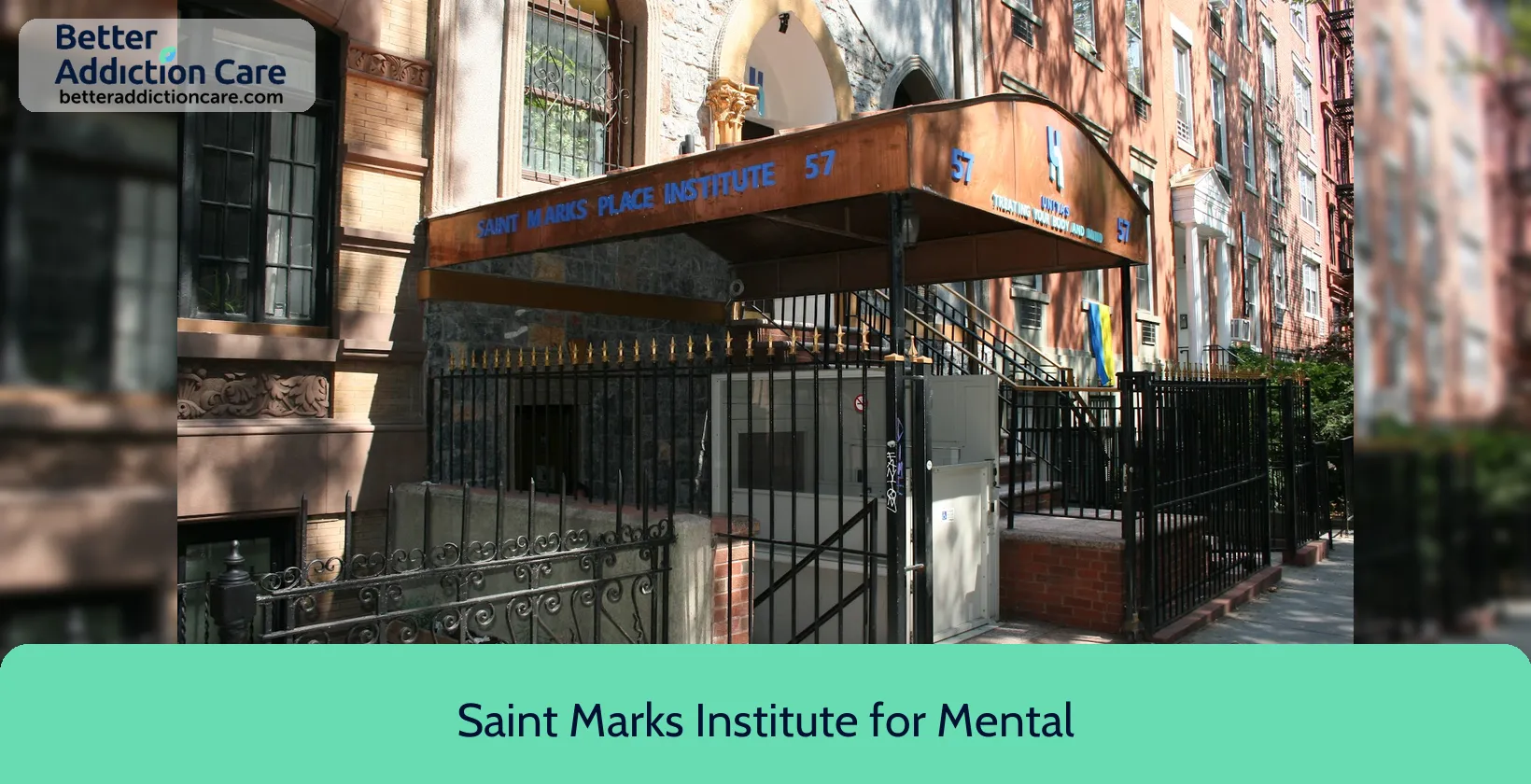Saint Marks Institute for Mental Health
Overview
Saint Marks Institute for Mental Health is a mental health treatment center for people seeking treatment near New York County. As part of their treatment modalities for recovery, Saint Marks Institute for Mental Health provides family counseling, individual psychotherapy, and cognitive behavioral therapy during treatment. Saint Marks Institute for Mental Health is located in New York City, New York, accepting medicaid for treatment.
Saint Marks Institute for Mental Health at a Glance
Payment Options
- Medicaid
- Other State funds
- Private health insurance
- Cash or self-payment
- State-financed health insurance plan other than Medicaid
Assessments
- Comprehensive mental health assessment
- Comprehensive substance use assessment
Age Groups
- Adults
- Children/adolescents
- Young adults
Operation
- Private for-profit organization
Highlights About Saint Marks Institute for Mental Health
6.71/10
With an overall rating of 6.71/10, this facility has following balanced range of services. Alcohol Rehabilitation: 8.00/10, Drug Rehab and Detox: 6.00/10, Insurance and Payments: 6.00/10, Treatment Options: 6.85/10.-
Alcohol Rehabilitation 8.00
-
Treatment Options 6.85
-
Drug Rehab and Detox 6.00
-
Insurance and Payments 6.00
Treatment At Saint Marks Institute for Mental Health
Treatment Conditions
- Mental health treatment
- Substance use treatment
- Co-occurring Disorders
Care Levels
- Outpatient
Treatment Modalities
- Family counseling
- Individual psychotherapy
- Cognitive Behavioral Therapy
- Group counseling
- Experiential Therapy
Ancillary Services
Languages
- Spanish
Special Programs
- Clients who have experienced trauma
- Persons 18 and older with serious mental illness (SMI)
Common Questions About Saint Marks Institute for Mental Health
Contact Information
Read our Most Recent Article About Drug Addiction
DISCLAIMER: The facility name, logo and brand are the property and registered trademarks of Saint Marks Institute for Mental Health, and are being used for identification and informational purposes only. Use of these names, logos and brands shall not imply endorsement. BetterAddictionCare.com is not affiliated with or sponsored by Saint Marks Institute for Mental Health.









